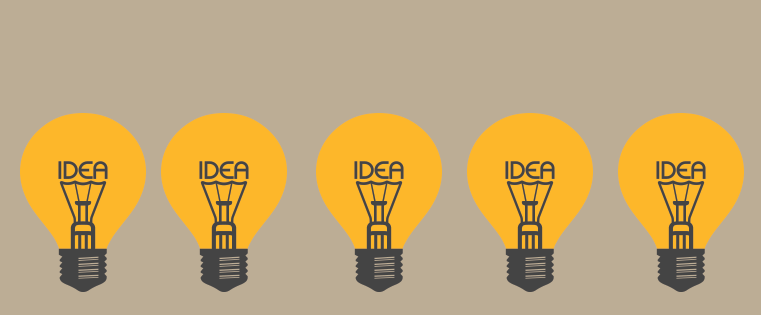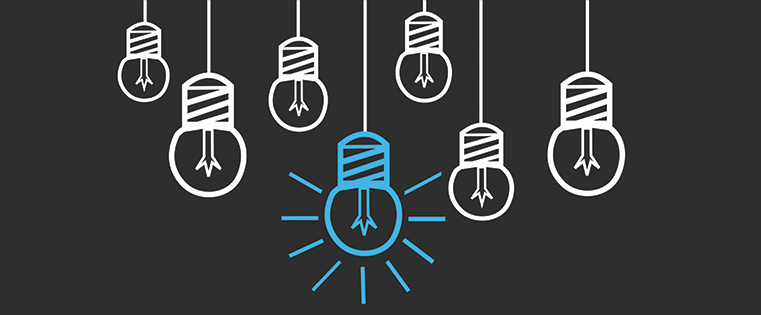There is no roadmap for being more creative more often.

Yet, it's something we should all try to better understand. Producing great creative ideas -- great work -- is what sets apart one agency from another. Fostering a culture of creativity in your agency is the best way to attract new business and better clients.
If you want to better understand how creativity works, how to increase it in your company, and why it matters so much for the future success of your clients' businesses, check out these six TED talks:
6 TED Talks About Creativity to Inspire Your Inner Genius
1) "Your Elusive Creative Genius" by Elizabeth Gilbert
To be creative, you have to be afraid -- afraid of rejection, of failure, and even of success, as Elizabeth Gilbert found after the publication of Eat Pray Love, which she wrote before she turned 40 years old and has sold more than 10 million copies. How does she get up every day and do the work she knows she is meant for when most likely, her greatest success is already behind her?
Gilbert discusses the immense amount of pressure people put on themselves to be creative and details how artists in Ancient Greek and Ancient Rome thought differently about the gift of creativity. Her point of view has interesting implications for the way we all approach doing "the work" and how we view our responsibilities as creators.
2) "How to Build Your Creative Confidence" by David Kelley
Not everyone is labeled a "creative" but everyone has the ability to be creative. But along the way, someone tells us that our creations are "ugly" or "awful" and we begin to lose our confidence in our ability to create. Some people even rely on excuses, such as "I'm left-brained" to opt out of creating and to prevent others from judging their efforts.
David Kelley, founder of the design firm IDEO, has made it his mission to help people gain back their creative confidence and discover what psychologist Albert Bandura calls self-efficacy -- the sense that a person has that she can change the world and accomplish what she sets out to do.
3) "When Ideas Have Sex" by Matt Ridley
Homo sapiens are the only species where the habit of exchanging one thing for another happens. Matt Ridley discusses how when human beings began trading and exchanging objects and ideas between groups, people also began to specialize, which helped to increase technological advances and cultural improvements. His speech is about how when experts communicate and work together -- when they create a collective mind -- they are able to achieve things beyond what we can even imagine.
4) "Embrace the Near Win" by Sarah Lewis
Sarah Lewis asks, "How do we convert success into mastery?" She believes it's when creators begin to appreciate the near wins. Success is just an event, while mastery is commitment to a constant pursuit. As creators, we are constantly making, writing, designing, etc., things that oftentimes don't meet our own standards. But it is in our resolve to continue to create that we achieve mastery of a craft.
5) "The Power of Time Off" by Stefan Sagmeister
Every seven years, Stefan Sagmeister closes his New York-based design firm Sagmeister & Walsh for one year to re-energize his creativity and recharge his passion for his work. He emphasizes the need for creators to get away from the office, to seek out new experiences and perspectives, and to try different activities. This break helps to reconnect Sagmeister to his craft, and in his TED talk, he showcases how the things he experienced during his sabbatical had a direct and profound influence on his clients' projects.
6) "Tales of Creativity and Play" by Tim Brown
Tim Brown, also from IDEO, highlights again how detrimental fear is to the creative process and emphasizes how encouraging playfulness can improve people's mood, increase creativity, and help people make better decisions. Brown highlights why you need rules for brainstorming, the benefits of "construction play," and how role-playing can help people learn and better understand ideas and solutions.

![5 Creativity Challenges to Spark Your Next Idea [Infographic]](https://blog.hubspot.com/hubfs/00-Blog_Thinkstock_Images/creativity-challenges.png)



![The Daily Routines of Creative Professionals [Infographic]](https://assets.pinterest.com/images/pidgets/pinit_fg_en_rect_red_20.png)


![Sketch It Out: Why Doodling Is the Key to Staying Inspired [Infographic]](https://blog.hubspot.com/hubfs/00-Blog_Thinkstock_Images/Doodling_Infographic.jpeg)

